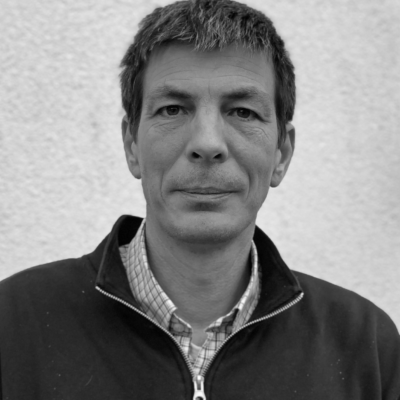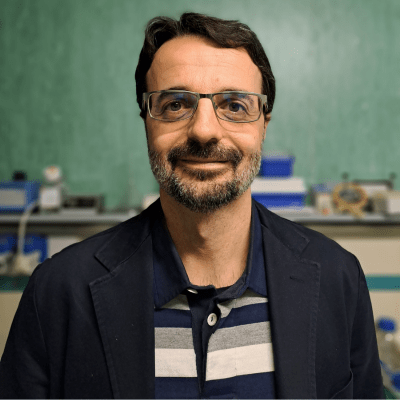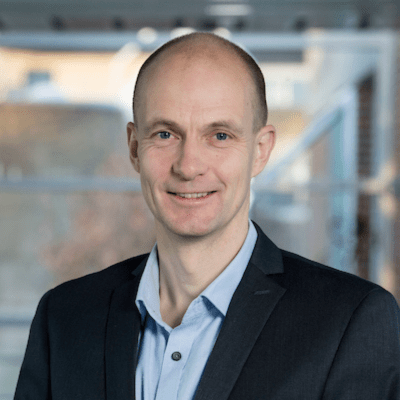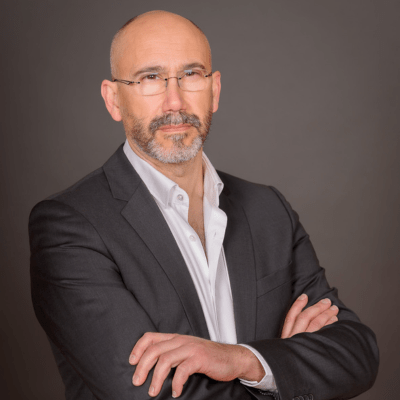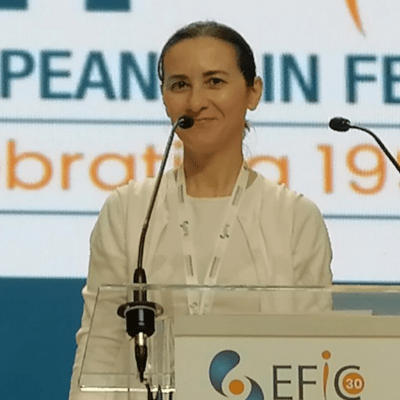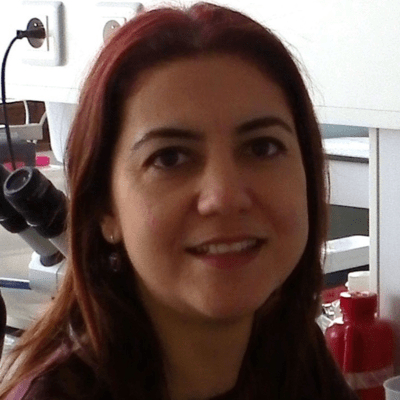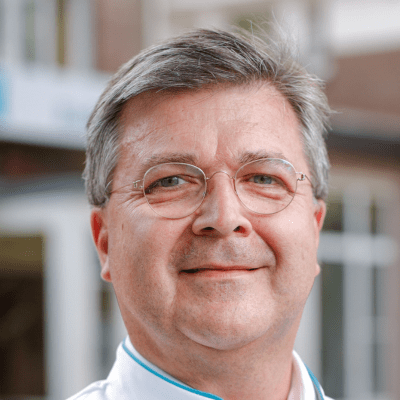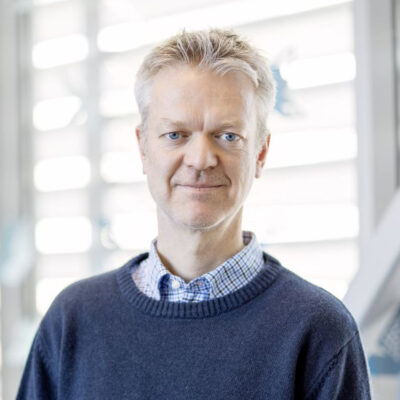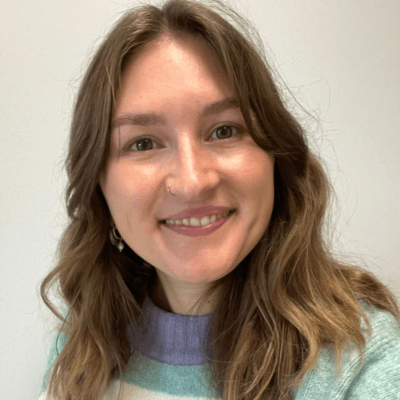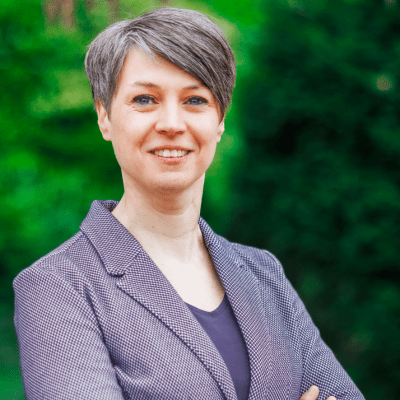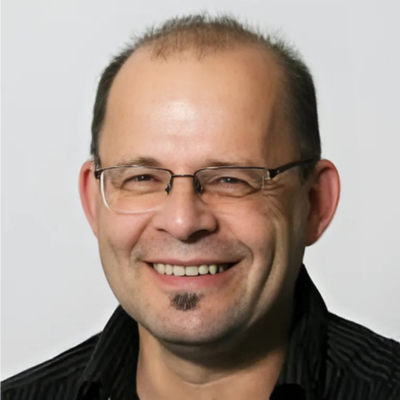
Meet the #EFIC2025 Scientific Programme Committee
Chair
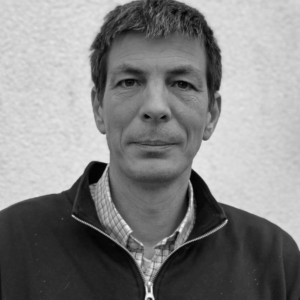
André Mouraux
André Mouraux heads the UCLouvain Institute of Neuroscience within which he coordinates a research group exploring the physiology and pathophysiology of the human thermonociceptive system. Using functional brain imaging techniques such as scalp and intracerebral electroencephalography (EEG) and functional magnetic resonance imaging (fMRI), combined with novel methods to selectively activate specific classes of nociceptive afferents (temperature-controlled infrared laser stimulation, mechanical pinprick stimulation, electric stimulation) and neuromodulation techniques (transcranial direct current stimulation, transcranial magnetic stimulation), he aims at better understanding the neural processes underlying the perception of pain, the plastic changes in nociceptive pathways that occur after inflammation, injury or sustained nociceptive input, and their involvement in the development of chronic pain. Several of these approaches are also translated into tools for pharmacological development and clinical diagnosis (http://www.nocions.org).
Watch this video with SPC Chair André Mouraux:
Committee Members
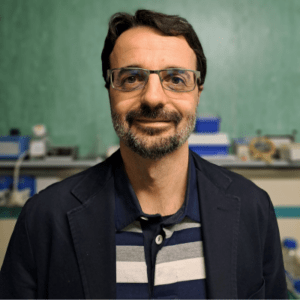
Andrea Bedini
Andrea Bedini is Associate Professor of Pharmacology at the Department of Pharmacy and Biotechnology, University of Bologna (Italy); on March 2023 he obtained the National Habilitation to Full Professor.
Prof. Bedini earned both his MSc degree in Medical Biotechnology with honors, and his PhD degree in Cellular and Molecular Biotechnology with outstanding grades at the University of Bologna. He was Visiting Scientist at the Department of Pharmacology and Toxicology, University of Magdeburg (Germany) from August 2006 to February 2007, under the supervision of Prof. Volker Hoellt and Dr. Juergen Kraus, and Visiting Scholar in Prof. Charles Chavkin’s research group at the Department of Pharmacology, University of Washington (Seattle, USA) from February 2013 to February 2014.
Prof. Bedini’s research has been first focused on the transcriptional modulation of mu-opioid receptor expression in neuronal and immune cells, then on the characterization of innovative mu and kappa opioid ligands with improved pharmacological profiles and on understanding the molecular determinants of such ameliorated profiles. Prof. Bedini’s current research focuses on applying molecular and cellular pathway analyses to the development of Quantitative Systems Pharmacology platforms aimed to identify more effective and safer analgesic treatments; within this frame, he recently received a prestigious EU-funded Horizon 2020 grant as team leader of the University of Bologna unit.
In July 2023, Prof. Bedini was awarded the 2023 Young Investigator Award by the International Narcotics Research Conference.
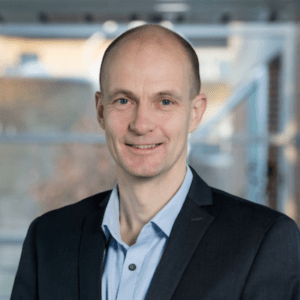
Carsten Dahl Mørch
Carsten Dahl Mørch, M.Sc., Ph.D.
Carsten Dahl Mørch is an accomplished researcher and educator in the field of Neuroscience, where his multifaceted expertise encompasses Pain, Computational Neuroscience, Electrophysiology, and Neuropathy. Graduating with a Ph.D. from Aalborg University in 2006, he had earlier acquired an M.Sc. in Biophysics from Copenhagen University in 2002.
Since 2009, Carsten Dahl Mørch has held the position of Associate Professor at the Department of Health Science and Technology, Aalborg University.
- Head of the Integrative Neuroscience Research Group, Aalborg University
- Head of Cutaneous Experimental Pain Research Laboratory
- Previous head of the Doctoral School, Faculty of Medicine
- Member of the Scientific Board of Neuroscience Academy Denmark (NAD)
- Member of the board of the Scandinavian Association for the study of Pain (SASP)
Carsten Dahl Mørch research interests are mainly within Pain, Computational Neuroscience, Electrophysiology, Small Fiber Neuropathy, Chemotherapy-Induced Neuropathy, and Diabetic Neuropathy.
Carsten Dahl Mørch is deeply engaged in research training, having supervised 12 phd students and 3 post-docs.

Caterina Leone
My professional journey began at Sapienza University where I obtained my medical degree in 2009. Rather than progressing into a specialist medical practice, my passion for research led me to pursue a Ph.D. in Neurophysiology under the esteemed guidance of Prof. Giorgio Cruccu.
During my doctoral studies I have managed several research protocols addressing mainly the clarification of the pathophysiological mechanisms underlying the
different types of neuropathic pain, with a focus on paroxysmal pain, collected in the
Ph.d thesis entitled “What’s behind neuropathic pain? Neurophysiological diagnostic tests investigating mechanisms underlying neuropathic pain.”
I hold the position of a researcher in Neurophysiology at the Department of Human Neuroscience at Sapienza University where I employ an array of neurophysiological diagnostic tools, including evoked potentials, nerve conduction studies, electromyography, trigeminal reflexes, quantitative sensory testing, and threshold tracking, striving to advance our understanding of neuropathic pain with a particular effort in defining novel diagnostic approaches as well as novel neurophysiological biomarkers. My clinical background has enabled me to focus my research on addressing the challenges faced by patients with both acute and chronic pain conditions.
In recognition of my unwavering commitment to the field, I was recently honored with the appointment as Chair of the Special Interest Group on Pain (PAINterest) of the International Federation of Clinical Neurophysiology.
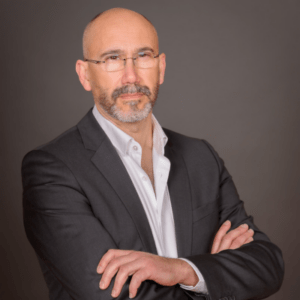
Denys Fontaine
Denys Fontaine is neurosurgeon and pain specialist, trained as a resident in Paris, senior neurosurgeon at the University Hospital of Nice, France since 1999 and full professor of Neurosurgery since 2014. He has obtained a PhD in Molecular and Cellular Biology in 2007. He is specialized in Functional Neurosurgery, particularly involved in deep brain stimulation and neuromodulation for chronic pain, including primary headaches. Since 2013, he is the director of the “Fédération Hospitalo-Universitaire Inovpain” (www.inovpain.org), a large consortium gathering clinicians, researchers and companies, and devoted to the development of innovative solutions for chronic refractory pain. He has coordinated several multicentric trials and published 160 scientific articles including 35 as first author. He is president of the French chapter of the International Neuromodulation Society since 2021.
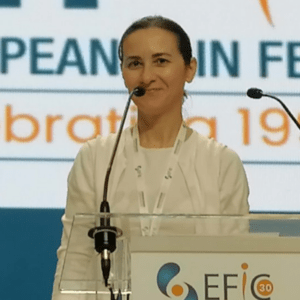
Dusica Stamenkovic
Dusica M. Stamenkovic, MD, PhD, MSc Anesthesiologist, Prof. of Anesthesiology, Medical Faculty of the Military Medical Academy, University of Defense in Belgrade, Serbia. (ORCID 0000-0003-4121-1966)
APPOINTMENTS Anesthesiologist, Military Medical Academy, Department of Anesthesiology and Intensive Care, Belgrade, Serbia (2008-present), Visiting Professor, Instructor in anesthesiology, Washington University School of Medicine in Saint Louis, Department of Anesthesiology, St. Louis, MO, USA (2005-2007). Research Fellow in liver transplant, Anesthesia Department, St James’s University Hospital, Leeds, United Kingdom (2004-2005).
RESERCH AND PUBLICATIONS Field of interest innovative approaches to acute perioperative pain treatment, chronic postICU pain, preoperative anxiety and consequences on postoperative recovery. Editor of books, author and co-author in book chapters and papers in international and national medical journals. Invited speaker and author and co-author of abstracts published in international and national conference proceedings. Participation in local, regional, and national activities including Vice president of the Serbian Association of Regional Anesthesia (SARA), board member of the Serbian Association of Anesthesiologists and Intensivists (SAAI) (2014-2022). Member of Scientific and Organizing Committee of Belgrade International Symposium on Pain, Serbian Congress of Anesthesiologists and Intensivists, Associate editor in BMC Anesthesiology and past Editor-in-chief of Serbian Journal of Anaesthesia and Intensive Therapy (2018-2022), Editor-in-chief of Conference Proceedings. Reviewer in several international journals.

Franziska Denk
Franziska Denk is a Reader at King’s College London, where she works on neuro-immune-stromal cell interactions in the context of chronic pain. Her lab uses transgenic models, stem cell derived human cell culture systems and high-throughput molecular analyses (https://www.franziskadenk.com/, @denk_lab).
Franziska’s team is funded by the Wellcome Trust, the MRC, the European Union, industry and several charities. Her group is passionate about data sharing (Denk, Nature, 2017) and interdisciplinary research in an open, positive research culture.
Franziska is co-Director of the Wellcome Trust funded PhD Training Scheme in Neuro-Immune Interactions in Health and Disease (https://www.wellcomeneuroimmunephd.co.uk/).
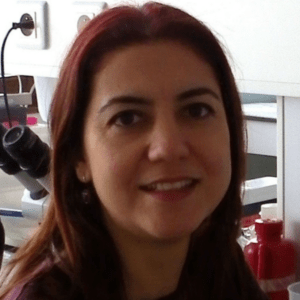
Ipek Yalcin
Ipek Yalcin, PharmD, PhD
Dr. Yalcin is a Research Director at CNRS, France. She leads “Neuroanatomy, Pain & Psychopathology” team at the Institute of Cellular and Integrative Neuroscience in Strasbourg. She is also Adjunct Professor at the Department of Psychiatry and Neuroscience, Université Laval. Since she obtained a tenure researcher position at CNRS in 2010, she works on the comorbidity between chronic pain and mood disorders by bringing together her PhD and postdoctoral expertise in a new and independent research axis. She has 68 publications, 6 book chapters and two patents. She has received several awards including Young Investigator Awards from NARSAD, Young Talent Award from the University of Strasbourg, Prix Guy Ourisson and medal bronze from CNRS. She is a senior Editor of Neuropharmacology and is on the editorial boards of further journals in Pain Field.

Katja Wiech
Katja Wiech studied psychology at the Universities of Kiel and Düsseldorf (Germany). She completed her PhD in Tübingen (Germany) under the supervision of Prof. Niels Birbaumer before joining the research group of Prof. Ray Dolan at the Wellcome Trust Centre for Neuroimaging in London (UK). During this time, she gained expertise in functional magnetic resonance imaging (fMRI) to investigate cognitive-affective modulators of pain perception and neural processing. She then joined the Pain Imaging Neuroscience Group at the University of Oxford (led by Prof. Irene Tracey) where she continued her research on the psychological aspects of pain. Katja received a New Investigator Grant from the Medical Research Council (MRC), UK which allowed her to establish her own group at the Nuffield Department of Clinical Neurosciences, University of Oxford and the Wellcome Centre for Integrative Neuroimaging (WIN).
Katja’s current research focuses on the influence of beliefs on the perception and neural processing of pain and aims to characterise the processes that integrate beliefs with incoming sensory information and the failure of optimal integration in biased perception. Her research uses a multi-method approach combining different non-invasive neuroimaging techniques including functional and structural magnetic resonance imaging with behavioural and autonomic measures.
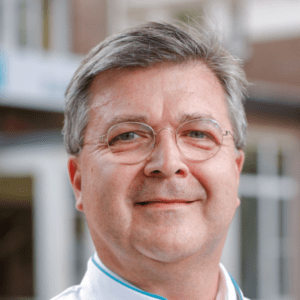
Kris Vissers
Kris Vissers is an accredited anesthesiologist – pain specialist and consultant in palliative care, professor in Pain and Palliative Medicine and chairman of the Radboud Expertise Center of Pain and Palliative Medicine of the Radboud University Nijmegen Medical Centre in the Netherlands. As a Research Group Leader his research program focusses on the quality of life of vulnerable patients.
Since 2005, he is Professor in Pain and Palliative Medicine at the Radboudumc University Nijmegen. He is ex officio board member of the Benelux Chapter of the World Institute of Pain and was the first chairman of the Dutch Society of Multidisciplinary Palliative Care Professionals[i], chapter of the European Association of Palliative Care (EAPC) and is the immediate past president of the Pain Alliance in the Netherlands, oldest chapter of the IASP. He is a past chair of the educational committee of EFIC. He is Past President of the World Institute of Pain. Currently, he is the chair of the Board of Examination of the World Institute of Pain for FIPP/CIPS certification.
His main research interests are (1) translational approach and research on neuropathic pain, (2) practical and ethical application of palliative sedation, (3) proactive care and identification of patients in a palliative trajectory, (4) quality indicators of the organization and practice of pain and palliative medicine, (5) e-health and telemedicine in transmural care programs (6) decision making in palliative care and end-of-life and (7) the description of competences and performances for the education and training in pain and palliative medicine.
He succeeded in getting external funding resources for major research projects in pain and palliative care (Europall, 7th framework, ZonMw, NWO, KWF, H2020, H2021).
He is author of more than 250 publications in international peer reviewed journals and contributed to more than 20 textbooks. He contributes to local and national education with regular articles in Belgian and Dutch journals for physicians and for the lay public. He is frequently asked as speaker during national and international congresses and teaching courses. He was promotor of 40 PhD affiliates who completed their training. Currently, he is training about 36 PhD affiliates. He organized 10 international congresses and workshops. He was member of several scientific committees of congresses. Regularly, he is consultant and adviser for the ministry of Health of the Netherlands.

Luis Garcia-Larrea
Luis Garcia-Larrea (Madrid, 1956) obtained his MD and PhD degrees, and the medical specialisation in Clinical Neurophysiology from the University of Barcelona (Spain). He is currently Research Director at the research team NeuroPain at the CRNL, and member of the Neurological Hospital Pain Center. He is the current President of the European Pain Federation EFIC.

Madeleine Hau
Madeleine Hau completed her M.Sc. in Biomedicine at the University of Zurich in 2021. Currently, she is pursuing a Ph.D. in Neuroscience at the Zurich Neuroscience Center within the Integrative Spinal Research Group at the Department of Chiropractic Medicine, University Hospital Balgrist, and the University of Zurich under supervision of Prof. Dr. Petra Schweinhardt.
Madeleine received the EFIC 2023 Oral Communication award, leading to her role as an Early Career Researcher in the Scientific Program Committee.

Madelon Peters
Madelon Peters is professor of experimental health psychology at Maastricht University, the Netherland. Here research focuses on the influence of psychological risk and resilience factors for pain chronification and pain disability. She combines experimental research in healthy volunteers to elucidate mechanism of pain chronification with observational studies and randomized controlled trials in people affected by chronic pain. In her experimental work she studied among others how optimism reduces the interfering effects of pain. For her clinical research, she developed and tested the efficacy of a positive psychology intervention to increase wellbeing in patients with chronic pain. Her current work is largely on post-surgical pain. She performed several prospective studies on predictors of persistent pain after surgery. She also leads two multicenter trials on the efficacy of peri-operative cognitive behavioral therapy to reduce the risk of chronic post-surgical pain in patients undergoing breast cancer surgery or spinal
fusion surgery. Her main motivation is understanding what drives pain chronification and finding ways to alleviate the suffering of patients.

Massieh Moayedi
Massieh Moayedi received his PhD in Pain NeuroImaging under the supervision of Dr. Karen Davis at the University of Toronto, where he investigated the neural mechanisms of orofacial pain using MRI. His postdoctoral research at University College London was under the supervision of Dr. Giandomenico Iannetti, where he investigated electrocortical correlates of pain. Massieh is an Associate Professor at the University of Toronto’s Faculty of Dentistry (tenured in July 2023), a University of Toronto’s Centre for the Study of Pain Scientist and holds a Canada Research Chair (Tier 2) in Pain NeuroImaging. He has received an IASP Early Career Research Award, and holds funding from NFRF, NSERC, CIHR, Ontario, CFI, and NIH. He has active collaborations with groups across Canada, the United States and Europe. He serves the pain community both locally, nationally, and internationally: he is an Editorial Board member of PAIN and PAIN Reports, serves on several CPS committees, is co-chair of the IASP NeuroImaging of Pain SIG, and runs the international Human Pain Seminar Series. He is a strong believer in community and mentorship and supporting trainees achieve their goals, championing EDI principles. Massieh, who has chronic pain resulting from cancer treatment, uses brain imaging to study the mechanisms of acute and chronic pain in pediatric and adult populations. Specifically, his research uses a biopsychosocial lens to understand the contributions and interactions of these domains to the pain experience.

Mira Meeus
Mira Meeus is full-time appointed as professor at the Department of Rehabilitation Sciences and Physiotherapy at the University of Antwerp. She built up a solid reputation within the research domain of central pain processing in chronic pain.
Mira is co-founder of the International research group Pain in Motion (www.paininmotion.be) that studies chronic pain and of the CarEdOn research group (https://www.caredon.org/), a research group whose mission is to improve Care in Edema and Oncology by advancing biopsychosocial assessment and treatment. She has 15 book chapters, 3 edited books and more than 260 publications (H-index 55; > 8500 citations) with the majority appearing in top-tier journals spanning both biology and behavior. Consequently, she has an outstanding track record in the field of central nervous system sensitization (www.expertscape.com: 2nd world expert). As such, she is frequently asked for keynote & invited lectures (>30) and courses (>80) at both national and international conferences and workshops.
She is a member of the multidisciplinary steering committee of European Pain Federation (EFIC) Research Strategy (https://europeanpainfederation.eu/efic-pain-research/efic-pain-research-strategy/), and takes part in the a NETWORKING GROUP ON CHRONIC PAIN of ERA-NET.

Muriel Curtet
My name is Muriel CURTET, I am a pain resource nurse and I have worked at the Neurological Hospital of the Hospices Civils de Lyon for 20 years.
I obtained my DIU “Training of healthcare professionals in pain management” in 2014, which allowed me to join the team at the Pain Assessment and Treatment Center in 2015.
For 2 years now, I have joined a new team specialized in Neuromodulation. Within this innovation project, we are trying to build an optimal care pathway (monitoring, therapeutic education, support, evaluation) for patients suffering from chronic pain who have a spinal cord stimulator. In this context, with my psychologist colleague I lead groups of patients suffering from chronic pain. They are encouraged to discuss their experiences with an implanted device and the benefits they derive from it through photolanguage or even sophrology.
I am also part of the Auvergne Rhône-Alpes Douleur Society that supports and leads the pain theme in the Auvergne-Rhône-Alpes region (SARADOL is the regional branch of the SFETD).
I am also a member of the professional nursing commission of the SFETD, the neuromodulation commission of the SFETD and the SFNM (Société Française de Neuromodulation).

Nadia Malliou
I am Nadia Malliou, a psychologist from Thessaloniki, in the Northern part of Greece, and have been living with chronic pain for more than 20years facing all the difficulties and inadequacies of the health system in regards to chronic pain treatment and management in Greece. I have a Master’s degree in Cognitive and Experimental Psychology, with emphasis on Neuropsychological rehabilitation, have worked as a volunteer since I can remember my adult self. I am on the board of the Hellenic League against Rheumatism ELEANA, a national organization for RMDs, on the board of Pain Alliance Europe PAE and on the board of the Federation of Rare Diseases in Greece. I recently started my PhD on psychological phenotyping and perioperative interventions for chronic postsurgical pain. My research interests are focused on chronic pain management (development of mHealth applications, interventions for chronic pain management) and have been working in a clinical context supporting patients with chronic pain as an Associate for the Pain Unit of the General University Hospital AHEPA of Thessaloniki for the past few years. I have facilitated groups of patients or individuals with chronic diseases and/or chronic pain using CBT techniques.

Özden Gökdemir
She graduated from the Faculty of Medicine at Karadeniz Technical University in 2002. She worked for two years in a Trabzon rural family healthcare center and two years in an emergency service (rural part, on ambulance or center of the emergency call-112). She then spent about five years at Rize's Cancer Early Diagnoses, Screening, and Education Center, where she screened for breast cancer, cervix cancer, and colon cancer. Her job description also included "Smoking Sessions."
In 2016, she finished her trainee education at Dokuz Eylül University Faculty of Medicine, Department of Family Medicine, and her Ph.D. from the same university, Department of Physiology. She completed her mandatory work in Isparta between 2016 and 2018. She started working as an Assoc Prof. Dr at Izmir University of Economics-Faculty of Medicine in 2018.
Dr. Gokdemir was the past leader of the special interest group on mental health at the World Organization for Family Doctors (WONCA)-Vasco da Gama Movement (2018-2021).
She is a member of the Rural Wonca (Wonca Working Party on Rural Practice) Council.
She is also the media director of Aile Hekimliği Akademisi and a member of the AHEF vaccination council.
She’s a member of TTB, TAHUD and EGPRN
Dr. Gokdemir is a member of the editorial board of the Turkish Journal of Family Medicine Primary Care, The Journal of Turkish Family Physician, and the Journal of Applied Sciences and Clinical Practice (JASCP), and guest associate editor of Frontiers.
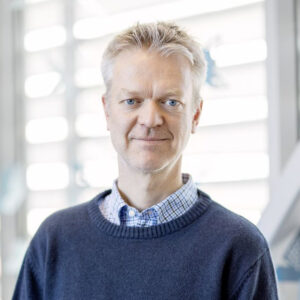
Paul Jarle Mork
Paul Jarle Mork is professor at the Department of Public Health and Nursing, Faculty of Medicine and Health Sciences, Norwegian University of Science and Technology (NTNU). His main topics of research encompass the influence of physical activity and lifestyle factors on health with special focus on chronic pain, prevention and rehabilitation of chronic pain, and the development and implementation of decision-support systems to assist clinicians and patients in their management of chronic pain.
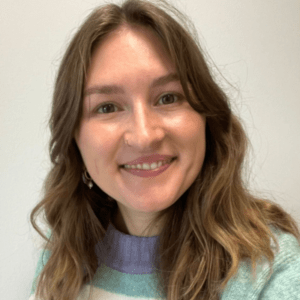
Sabrina Grundtner
Sabrina Grundtner, MSc is a molecular biologist, who completed her master’s thesis in 2020 in cancer research, at the Medical University of Vienna. In November of that year, she started her PhD in the field of neuropathic pain research in the Systems Biology of Pain group of Univ. Prof. Manuela Schmidt, Ph.D. (University of Vienna, Austria). Her research addresses the profound complexities of (chronic) neuropathic pain. Using a preclinical mouse model, her work focuses on behavioral and proteome dynamics, with a particular interest in age- and sex-dependent variations over a longitudinal time course. With this comprehensive approach, Sabrina aims to provide valuable insights into the multifaceted nature of chronic neuropathic pain.

Serge Perrot
Serge Perrot is Rheumatologist and Pain Specialist at Cochin Hospital, Université Paris Cité, France.
He is currently Professor of Clinical Pharmacology at Paris Cité University, and head of the Pain Clinic of Cochin University Hospital, in Paris, France. As a researcher, he is also a member of the INSERM Research Unit 987.
He was president of the French Pain Society (SFETD) and member of the Council of the IASP. He was actively involved in the WHO-IASP joint committee for the new ICD11 classification on pain. He is a member of the EFIC educational task force.
The main topics of his research are pain in musculoskeletal disorders: low back pain, osteoarthritis, fibromyalgia and inflammatory rheumatisms and also pharmacology of analgesics. He has developed several questionnaires for musculoskeletal pain. One in Fibromyalgia: the FiRST (Fibromyalgia Rapid Screening Tool) questionnaire for the screening of fibromyalgia, and another one in osteoarthritis: the OASIS (Osteoarthritis Symptom Inventory Scale) questionnaire for the classification of osteoarthritis pain.
His publications include more than 270 papers in international journals, and several books on pain and pharmacology of analgesics.
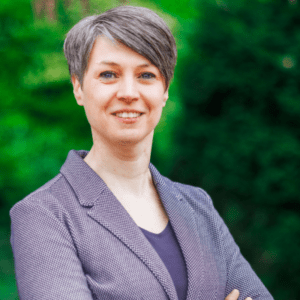
Susanne Becker
Since April 2022, I am Professor for Clinical Psychology at the Institute of Experimental Psychology of the Heinrich Heine University Düsseldorf, Germany. My background is in psychology and cognitive neurosciences. In 2009, I earned my PhD at the University of Mannheim, Germany, after which I was a postdoctoral research fellow in Prof. Dr. Petra Schweinhardt’s lab at the Alan Edwards Centre for Research on Pain, McGill University, Montreal in Canada. From 2013 onwards, I was a post-doctoral fellow in the group Prof. Dr. Dr. h.c. Dr. h.c. Herta Flor at the Central Institute of Mental Health in Mannheim in Germany, where I became an independent research group leader in 2016. In 2019, I started a new research group funded by the Swiss National Science Foundation (SFN, PRIMA) at the Department of Chiropractic Medicine, Balgrist University Clinic at the University of Zurich, Switzerland. I serve as a member of the editorial board for PAIN, Neuroscience Letters, and Frontiers in Pain Research and I am also a member of the Steering committee on the EFIC Research Strategy, the EFIC Working Group for Translational Research, and the IASP Fellowships, Grants, and Awards working group. My work focuses on psychobiological mechanisms of human pain perception in health and disease states. The overarching goal of my work is to characterize neuroanatomical and neurochemical mechanisms of the interaction of pain and reward processing in humans and to identify pathogenetic relevant alterations of these processes in patients with chronic pain, Parkinson’s disease, and mitochondrial disorders. To investigate these mechanisms, my research group uses and combines various methodological approaches such as behavioral testing, pharmacological interventions, and neuroimaging techniques as well as computational modelling.

Walter Magerl
Dept. of Neurophysiology
Mannheim Center for Translational Neuroscience (MCTN)
Medical Faculty Mannheim, Ruprecht-Karls-University Heidelberg
Current position: Associate Professor (since 2005)
Deputy Head, Institute of Neurophysiology
Human Pain Plasticity Group Leader
Mannheim Center for Translational Neuroscience (MCTN)
Medical Faculty Mannheim, Ruprecht-Karls-University Heidelberg
Education
- Study of Medicine at the University Erlangen-Nürnberg
- PhD thesis project at the Institute of Physiology and Experimental
Pathophysiology, University Erlangen-Nürnberg
- Diploma thesis project at the Department of Physiology, University Heidelberg
- Study of Psychology at the University Heidelberg
Professional functions
since 01/2014 Deputy Head, Chair of Neurophysiology,
Center of Biomedicine and Medical Technology Mannheim (CBTM),
Medical Faculty Mannheim, University of Heidelberg
since 03/2008 Group leader (E15), Chair of Neurophysiology,
Center of Biomedicine and Medical Technology Mannheim (CBTM),
Medical Faculty Mannheim, University of Heidelberg
03/1999 - 02/2008 Research scientist (BAT II, E13), Institute of Physiology and Pathophysiology,
Johannes Gutenberg University Mainz
03/1993 - 02/1999 Assistant professor C1 (Hochschulassistent), Institute of Physiology and Pathophysiology, Johannes Gutenberg University Mainz;
03/1992 - 02/1993 Research scientist Sonderforschungsbereich SFB 353 (Center Research Grant CRC 353) „Pathobiology of pain generation and pain processing“, University Erlangen-Nürnberg
10/1986 - 02/1992 PhD student at the Department of Physiology, University Erlangen-Nürnberg
